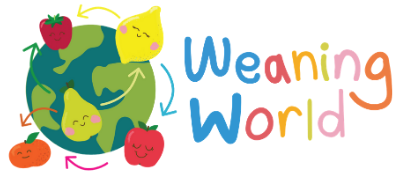Weaning and allergies
Introducing common allergens during weaning
With thanks to Lucy Upton, Specialist Paediatric Dietitian & Nutritionist
Whilst introducing solids can feel like a daunting prospect alone, some of the steps within this journey will often raise anxiety levels further, even in the most confident of parents. One such area is the introduction of allergenic foods – which frustratingly for parents is also an area of weaning advice where guidance has changed a number of times over the past 20 years (as if it wasn’t confusing enough!). To help guide you through weaning and allergies, I’ve summarised the current evidence base and guidance about introducing common food allergens during weaning below…
What are the common food allergens?
- Cow’s milk
- Eggs
- Foods that contain gluten, including wheat, barley & rye
- Soya
- Fish
- Shellfish
- Sesame
- Peanuts
- Tree nuts e.g. almond, pistachio, hazelnut, macadamia, pecan, cashew, brazil
When should these be introduced during weaning?
Current UK department of health advice recommends that children are introduced to solids around 6 months of age. With this in mind, once baby has got to grips with their first weaning foods such as vegetables, fruit and/or starchy foods you can begin to incorporate the foods above into their diet.
For babies who would be considered higher risk of developing a weaning allergy, research suggests there may be benefits to proactive earlier introduction of these foods from 4 months of age – especially egg and peanut. Young children at higher risk of developing food allergy include;
- Babies who already have a known food allergy* e.g. Cow’s Milk Protein Allergy
- Babies with eczema, especially early onset and/or more severe eczema
If your baby falls into one of these higher risk groups, try to discuss with a health professional such as GP, Health Visitor, Paediatrician or Dietitian about the best time to introduce these foods. Whilst these babies are higher risk of reaction, they are also likely to benefit most when the food doesn’t cause a reaction.
Key take home point – There is no benefit to delaying introduction to these foods during weaning. In fact, delaying introduction past 12 months of age has been found to potentially increase your child’s risk of developing an allergy. Seek support early if your child fits in the higher risk groups above.
*Never feed you baby a food they are known to be allergic to
Top tips for introducing allergenic foods
- Be sure to introduce one allergen at a time – never give two or more new allergens to your baby one day
- Ensure your baby is well and not recovering from illness. If baby has eczema, aim for skin to be well managed/ under control
- Start with a small amount and build up gradually e.g. ¼ of a teaspoon, increasing slowly over the next few days
- Consider offering the food earlier on in the day e.g. in the morning to allow you time to monitor for any signs of reaction during the day
- If you baby refuses the food initially don’t despair! Try again another day, or consider mixing it into a food already tolerated and accepted. Do not force feed – allow baby to go at their own pace
- Consider the best way of supporting your baby to consume the allergenic food – often parents find that a puree or mashed foods initially are easier for guaranteeing consumption of the allergen, compared to baby-led style finger food – but this depends on your baby’s skills and progress with eating
- Once you’ve successfully introduced an allergenic food it’s important to keep giving it to your baby regularly. This may be easier for some foods such as wheat which is in a number of foods, but for options like egg and peanut aim to incorporate in baby’s diet at least once per week, but ideally up to 2 or 3 times per week
It can be helpful before introducing allergens to familiarise yourself with the common signs of a food allergy which can be found here
Lucy Upton is an experienced Paediatric Dietitian and Nutritionist, who is passionate about helping children and their families achieve happiness and health with food and nutrition, no matter what challenges may stand in the way. Her breadth of experience working in both the NHS and private sector, as well as being an advisor in early years public health and a practitioner for a feeding clinic, means that she has unique offering for children and families.
Instagram handle: @childrensdietitian
Join Lucy’s free online Weaning Workshop on Friday 8th May
Disclaimer: The views and advice given in this article are those of the guest writer and do not necessarily reflect the opinions of Weaning Week or any other organisations represented on this platform
